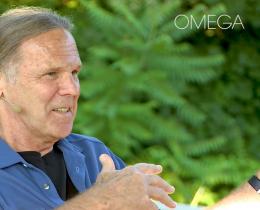Omega: Which archetypes are most prevalent in leadership in Western culture?
Richard: Overwhelmingly, the ones I've seen through the majority of the 20 years I've been working in business have been the warrior and the strategist. The one who creates the plan, and the one who makes it happen.
Omega: Which archetypes are missing or underrepresented, and do you see them being cultivated anywhere?
Richard: There has often been a vast underutilization of the characters that have a more archetypal feminine tone, like the nurturer, the lover, the dreamer, and others like that. This probably isn’t a surprise, given the current state of the world.
What we're finding right now is that there is a huge need for more creativity and change-oriented leaders. So the archetypes of the dreamer, the storyteller, the renegade, and the transformer are now being actively sought by organizations. And a lot of organizations are struggling to marry the desired new with the established old.
Laurence: What I'm really interested in is what I would call the awakening of the feminine, or the awakening of right brain capacities in male leaders, which is unfortunately who still runs the world. So there’s a lot of value in awakening the feminine because that automatically causes transformation in a person.
Omega: Do you think this type of change is possible within the current framework of the business world?
Laurence: There are plenty of people who are not going to change, and they’re usually older. Anybody I’ve worked with that’s 40 and younger is very interested and curious. They’ve often had a mystical experience they can’t explain, like having a baby or some other event that broke them open to something they hadn’t been able to access before. I want to be there to help them develop that and show them how those things are incredibly useful in business.
For example, we’re hearing a lot these days about negative capability, which actually comes from a poem from Keats. It basically means being able to acknowledge that I don't have the answer and I'm going to sit here and sit still with it until I find an answer. That's very different than being in control and getting the data and making a decision. These kinds of capacities are necessary for the complexities of the world today, and I think it's a win-win because men get more open, more complete, and more full-brained as they develop this.
Richard: I’m working with people on both edges—those who are all about change and those who may want to but don’t know if they can change. Look at the difference between the automobile industry and Silicon Valley. Those are two ends of the spectrum. On the surface, they’re really different, but the ability to read the future and intuit what needs to happen and be able to respond to it is equally urgent in both cases.
Omega: Are we moving away from a top-down leadership model? What is the new model you see as a possibility?
Laurence: Jean Houston talks about how we are all leaders and that every one of us, every day, is showing something to others by how we show up in our life. Whether it’s with your family, your job, or yourself, you have a chance to become aware of how you’re leading.
Richard: This is really important. If there is a new archetype, it is one of distributed leadership. It isn’t about a few heroes moving things forward. It is in the vast collection of people who own leadership in themselves in creative ways. Everyone needs to be a leader now, no longer just the chosen few.
Laurence: Yes, one of the key questions we’re dealing with is how do you organize and lead a heterarchy? Many people are struggling with this, and I have yet to see any answers that are really convincing. When there are 10 or more people, it gets complicated. But this is one of the biggest questions of our time.
Omega: Do you work in politics? Do you see the same thing there as in business?
Richard: I have worked with politicians a number of times, including with high-ranking public servants. I think they operate under slightly different assumptions. Politicians tend to be, on the surface, more adaptable because they recognize they need to present different faces or different sides of themselves at times. They see part of their role as a performance, whereas in business people don’t think of themselves like that.
Laurence: I don’t work with a lot of politicians, but I do work with politics in organizations and families. Jung had this idea that what isn’t internalized shows up in our lives as an external figure. Often in people’s astrological chart, there is a character they don’t have access to. Let’s say a woman was told that girls never get angry or raise their voice. And so their Mars is completely unknown to them because of how they were raised.
What happens is they find the bad boy out in the world, the one with the motorcycle and the leather jacket. That’s a simple example, but it’s quite common. We find someone to play the part for us that we don’t know very well. But that leaves us in a codependent relationship where they play a role for you and you for them. Evolving would mean that we own that part of ourselves and not have someone else play it for us.
Omega: How do you help leaders work with what feels like an accelerating pace of change?
Richard: I think we’re being asked as a species to go through an evolutionary process, one that many of those who are used to running the show in traditional patriarchal ways are completely unprepared for, have no training for, and actually have very little interest in.
New generations coming into the workplace have a much greater capacity for handling complexity and dilemmas than the folks I started working with 20 years ago, but they still don't yet have a mindset that can live consistently in an uncertain world without getting overstressed by it.
That capacity, to be in the storm but not be blown about by it, goes to the heart of many spiritual and meditative practices. Getting to the place where you're not trying to make things happen, but you are going with the flow and working with what is, in a truly emergent way, is the quintessential requirement for effective leadership in the 21st century.
Laurence: I’m not sure these times are any more difficult than other times. It may have been worse during the plague, or the dinosaurs may wish to argue with you about times being bad. Either way, the uncertainty is there and I can feel fear in people all over—not just in leaders, but in all individuals. That’s a real door opener for those of us doing this kind of work.
Omega: How do you see archetypal astrology and archetypal leadership translating into cultural change?
Richard: At the moment we work mostly with individuals, helping them develop conscious awareness of their own archetypal patterns and then consciously choosing how to change those archetypes to be ready for the future we’re heading into. Our dream, and where we’re starting to do some research, is to do this work on a systemic and cultural level.
People are doing the same old thing to deal with the ever more frequent disaster scenarios that keep happening, and it’s not working. We need some radical archetypal shifts. We need to figure out how to get our act together for the next stage of the planetary journey. This next act needs to be something much more in harmony with the rhythms of the planet and nature. We have chosen to ignore these in the industrial growth society, and that way has truly run out of steam. There is a shift afoot, and we think that archetypal patterning and these ideas we've been talking about can help prepare people for it.
Laurence: The wonderful thing about archetypal language is it brings us together. If I become aware of my inner warrior, then I can go to other cultures around the world and be curious about how they express the warrior. That becomes an interesting common language and a cross-cultural exploration as opposed to the idea that you're doing it wrong and I'm doing it right. I call archetypal astrology the human language of the 21st century. Stanislav Grof called it the Rosetta Stone of the soul. It’s a deciphering tool we can all use.



